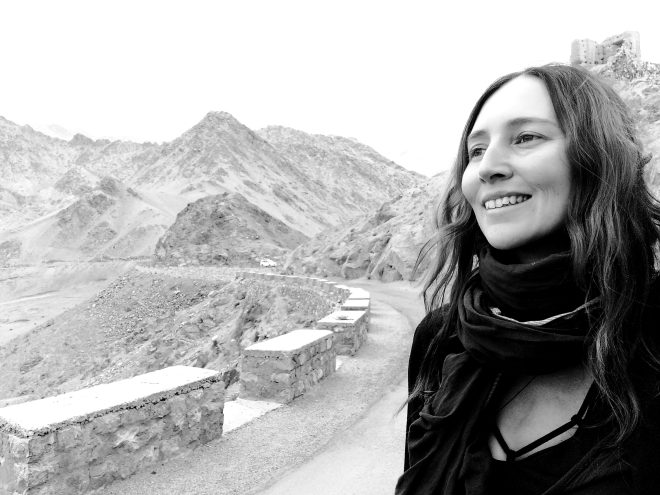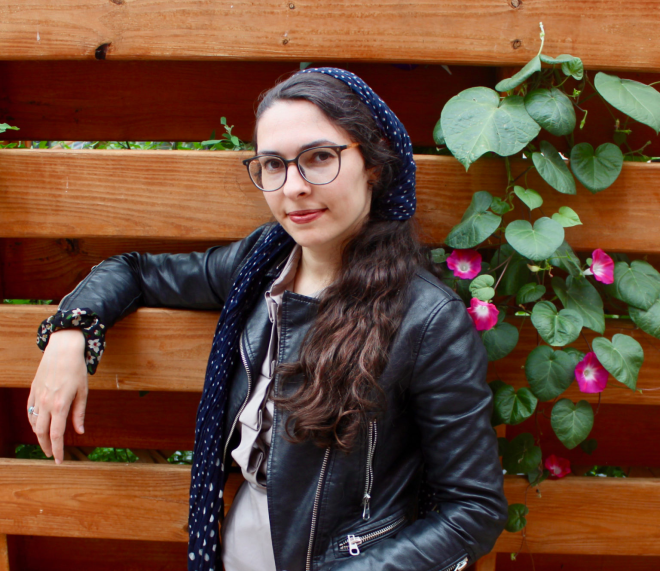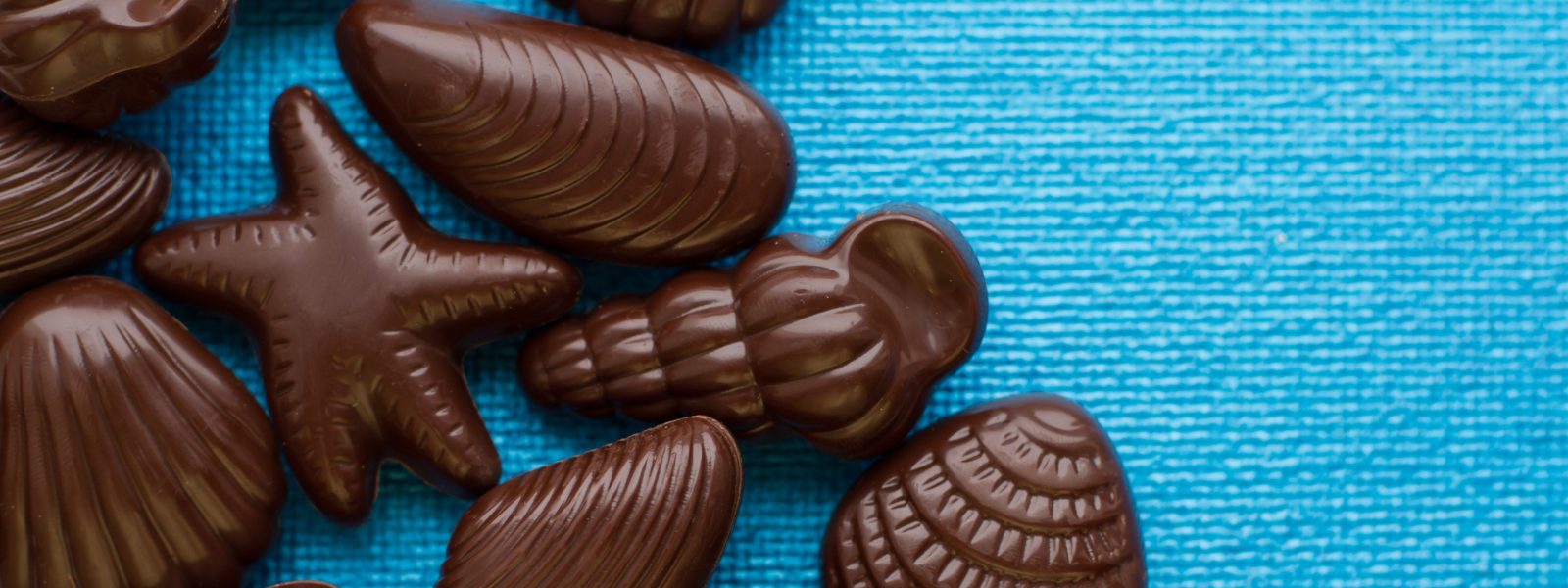Cast of Wonders 541: Ashes and Buttercream
Ashes and Buttercream
by Malina Douglas
The domovoi is protecting them. Sofiya knows this, even as her mother’s dismissive remarks prod the fireplace like skewers.
When the flames burn to embers and the ashes in the fireplace thicken, she sees him. A miniature creature with short limbs and stubby toes, a round face and snub-nose, a burnt texture to his skin. He smells like crème brûlée just after the surface has been singed.
She feeds him crumbs from her dinner while he answers with titbits of stories that don’t quite make sense.
Where Sofiya sees blinking eyes and the flash of a grin, her mother sees flames and flakes of ash. She tells Sofiya off for staring into the fire too long. Then she sighs into a kitchen chair, takes out her phone and stares at the screen.
In her mother’s work there are great glowing hearths but no domovois. Sofiya has checked. Her mother stirs steaming pots and fills moulds with dark delights in a chocolaterie. They live in Lviv, where carved faces gaze from curved Art Nouveau archways and baroque façades brush against classical columns. City of stone lions, violins and chocolate.
Their flat strains at the seams as a tide of relatives wash in. Sofiya’s world tilts as they slosh against the walls and flow through the room on a current of chatter, of shells exploding in Kharkiv, of sheltering in the metro beneath its glittering chandeliers. A Sabbath spent in the glare of unblinking lights.
The men debate through a thickening haze of pipe smoke and Sofiya’s aunt trades recipes with her mother, lilac lacquered nails brushing reams of yellowed paper. They read the movement of tanks like tea leaves till Sofiya’s mother nudges her out of the room on the order to play elsewhere.
Sofiya plays with her cousins, a pair of brash boys in mismatched clothes, who seem to be constantly poking each other and sharing private jokes. She joins them in a game of tag and they tear off down the hallways. Walls hung with paintings she has passed a hundred times take on a new dimension as she whips past them, and the portraits seem to frown as they blur. But one of the boys pushes her too roughly and she falls to the floor and erupts in hot tears.
Sofiya does not know how her parents can feed them all yet her mother conjures crispy golden ladkes, mushroom varenyky, cushioned jam-filled pompushky and a livid borscht that courses through their bodies like lifeblood. She bakes chocolate-filled rugelach, plaited challah bread and lokshen kugel sweetened with soaked raisins.
She fills the table even as supplies vanish off the shelves and the queues for emergency rations grow longer.
Yet despite her unusual abilities, she refuses to believe in magic.
Air raid sirens shatter Sofiya’s reality. As her family spills from the flat to the cellar of the building, Sofiya peeks at the fireplace. The domovoi winks at her.
Sofiya’s mother announces they are leaving. Her eyes gleam with the sadness of unshed tears.
“But the domovoi will protect us—” says Sofiya.
Her mother’s lips tighten. “I wish that were true.”
On the eve of their departure, Sofiya crouches before the fireplace.
“Will you come with us?” she asks the domovoi. “I can slip you into my bag.”
Ashes float upwards as the domovoi shakes his head. “I am bound to the house, and it is here I’ll remain. Who else will protect it until you come back?”
“But you’re the only one I can confide in!”
The domovoi’s brows draw together. “I’m sorry. I cannot leave with you.”
Sofiya slams her fist against the fireplace. “It’s not fair!”
“I know. I wish things could be different.”
Sofiya leans forward and rests her hands on her chin. “I’ll come back as soon as I can.”
“Until then.” Sadness dances in his eyes as the domovoi smiles.
She wants to reach into the fireplace, scoop him up like a freshly baked cookie and squeeze him. Instead she can only watch as he bows, belly swinging like a pendulum downwards, and steps behind a curtain of flame.
Sofiya and her parents, cousins, uncle and aunt sweep out of the house in a great rushing tide. New sights flood her vision and take over her senses.
On quiet nights, when she runs her hand along the metal ribs of the radiator in their crisp, cream-walled house with no fireplace, Sofiya imagines her domovoi, dozing in cold ashes. He will have dwindled to a wisp with no crumbs to feed him, and their flat will be shadowy, waiting.
Yet the months stretch like taffy, and still Sofiya does not know when they will return.
She attends a Polish school and is immersed in the murmured shush of sh, ch and sz sounds, till the words cease washing over her and begin to stick in her mind. She ambles with new friends along the riverbank, folds paper into boats and releases them to the current. She does not realise how far she has drifted till she turns back and the past is a distant shore.
Only many months later as she crouches beside a campfire, will she gaze into the flames and remember. As her classmates sing songs, the sharpness of the pain that wells up will surprise her. Another fire surfaces in her mind and all she has lost weighs her down like the paw of a stone lion.
A spark leaps to the night sky and Sofiya peers closer. There, in the v formed by criss-crossing sticks is the flicker of a smile.
In their new home in Wrocław, her mother opens a chocolaterie. She whips molten cacao into chocolates filled with raspberry and rum, buttercream and almonds. As her creations appear in the window, queues form and lengthen till they stretch out the door. Sofiya admires her craft and her mother shrugs off her compliments. They celebrate Rosh Hashanah with carrots for blessings, green beans for hope, pomegranates to seed the new year and honey to sweeten it.
If her mother will not admit it, then let her. Sofiya knows the truth.
That her mother does work magic, in her own peculiar way.
When the customers have ebbed and the day is the blue tone of twilight, Sofiya slips into the chocolaterie. Her mother’s eyes crinkle as she places a chocolate on Sofiya’s palm. A small square of midnight that she brings to her lips. As Sofiya closes her eyes and lets the rich velvet flavour dissolve on her tongue, she can taste Lviv.
Host Commentary
The author of this story is not Ukrainian herself, but has friends in the Ukraine and Lviv. She tells us that a close friend asked her to write stories about Ukraine, so she began to write stories set there. This story is part of a series of interconnected stories set in Ukraine and following characters from the Ukrainian diaspora.
This story shows both the resilience and the fragility of childhood. Sofiya is fortunate to have family and friends around her, the security of her mother, the stability of a welcome, the comfort of familiar tastes and routines. But she’s also torn from her home, carrying the weight of its absence always with her. The sense of belonging she finds within herself is sustaining, but still inextricably tied with her true home. Sofiya can bring it with her, in part, wherever she goes… but she has not been displaced by choice.
That fierce sense of connection can be a source of strength, an anchor. When you’re alone in a foreign land, when that anchor is lost…a sense of safety is a fundamental human need, and it’s tested sorely by such experiences. Even for more privileged immigrants, moving countries by choice, the change in circumstances can be bewildering for a child, setting you forever slightly apart from those you left behind, and sometimes never quite one with the new friends you discover. For refugees, the trauma is real, varied, lasting. Not every Sofiya has a domovoi guardian. Out here in the real world, not every Sofiya has the option to hold tight to those precious joys of home. Not every Sofiya finds a refuge. Not every Sofiya gets a childhood.
Not every Sofiya gets to live long enough to reach adulthood.
About the Author
Malina Douglas

Malina Douglas spins stories that fuse the fantastic and the real, blending history and fantasy to conjure distant eras and worlds. She was awarded Editor’s Choice in the Hammond House International Literary Prize and was a finalist in the Four Palaces Fiction Anthology Contest. In 2022, she was longlisted for the Reflex Press Prize, the Bath Short Story Prize and the Dorothy Dunnett Society Short Story Award. Alongside multiple anthology publications, she is the author of Red Panda Warrior, Jade Mountain and tweets @iridescentwords.
About the Narrator
Yelena Crane

Yelena Crane is a Ukrainian/Soviet born and USA based writer, incorporating influences from both into her work. With an advanced degree in the sciences, she has followed her passions from mad scientist to science fiction writer. Her stories often explore the boundaries of technology, the complexities of human nature, and the consequences of our choices. Yelena’s published in DSF, Nature Futures, Dark Matter Ink, Flame Tree elsewhere. Follow her on @Aelintari and https://www.yelenacrane.com/.



